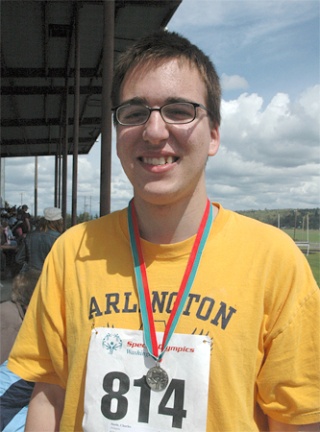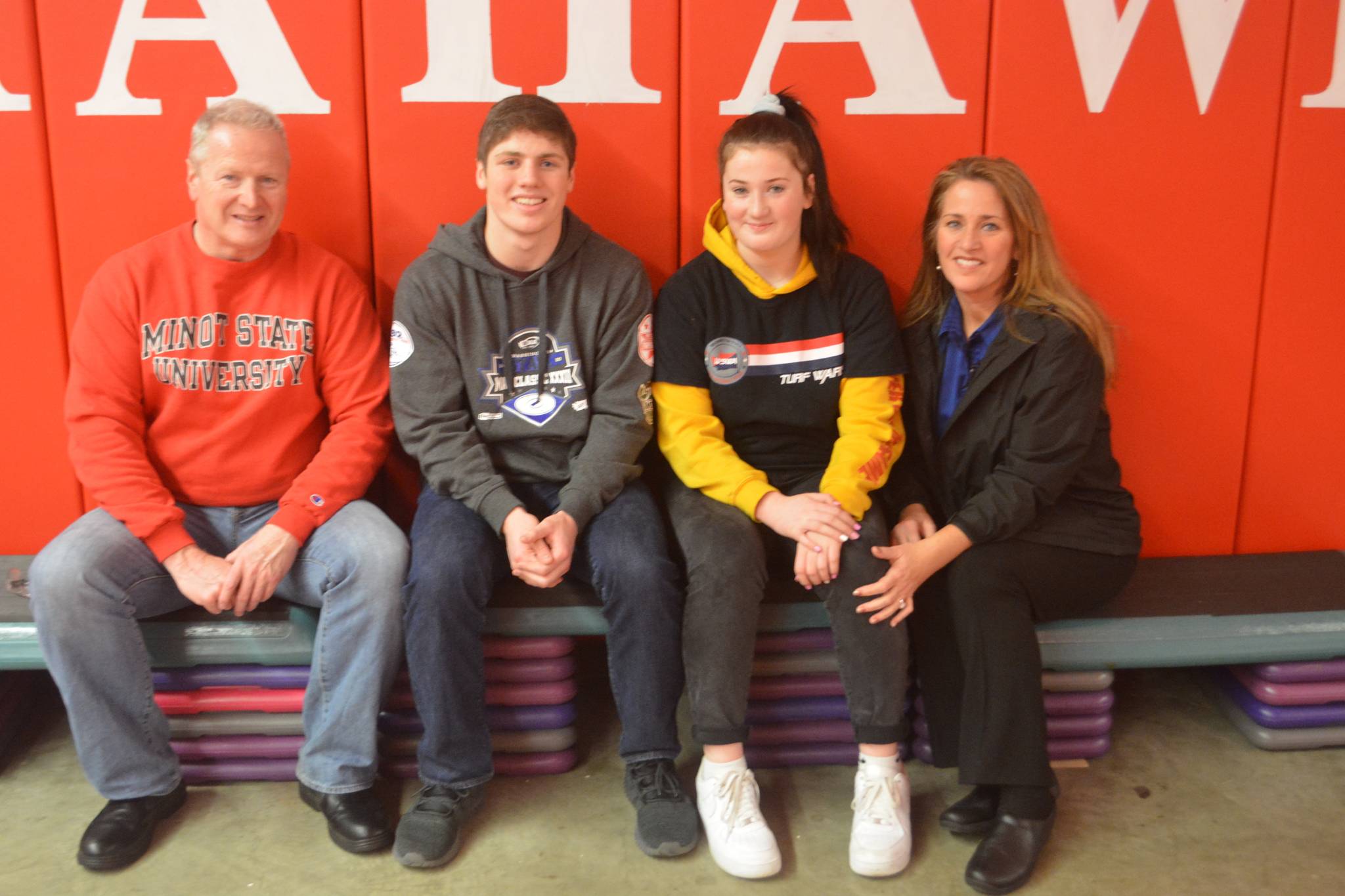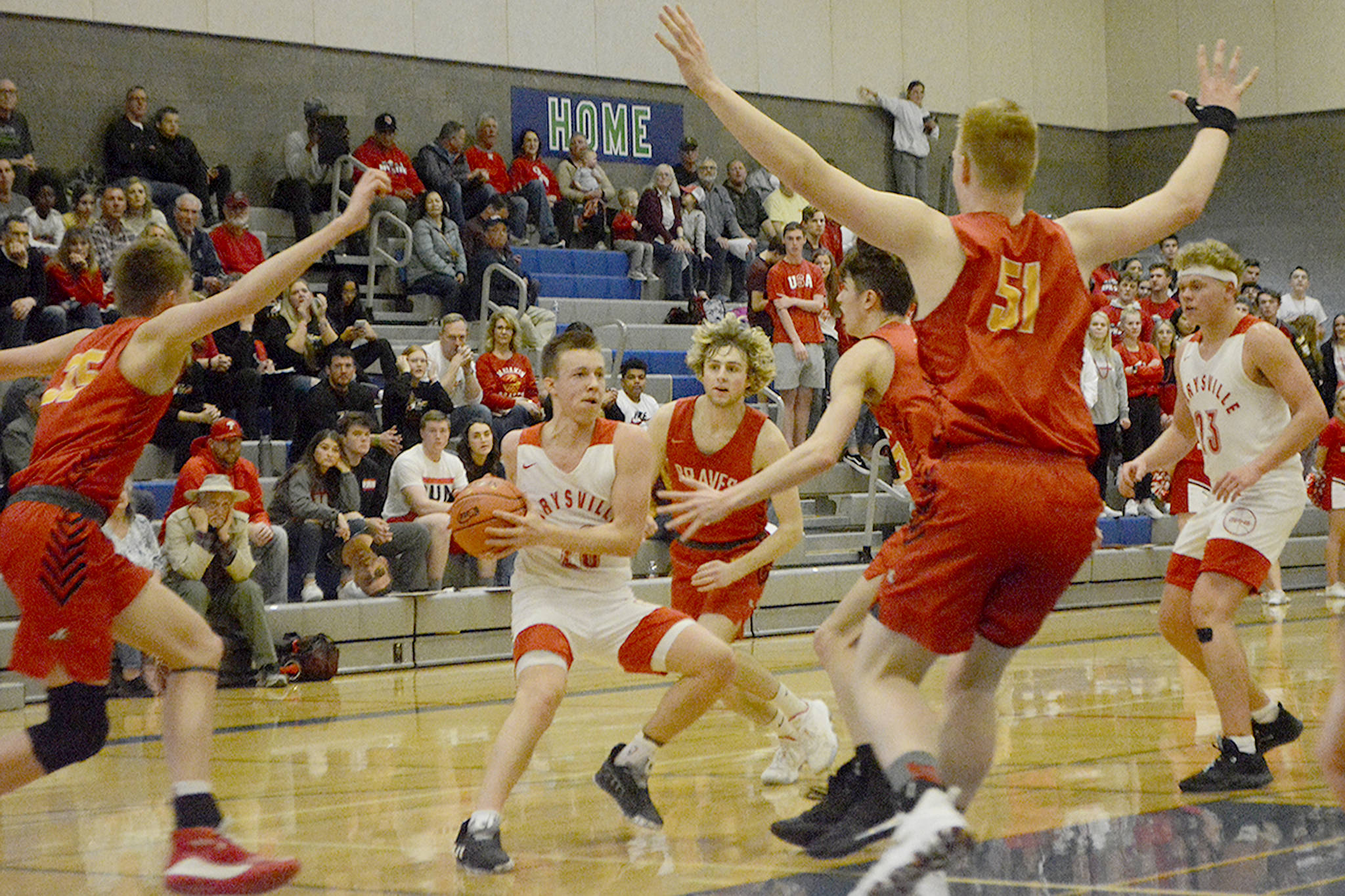MARYSVILLE — The Marysville-Pilchuck High School soccer fields and track stadium hosted a collection of exceptional athletes May 3, as the Special Olympics of Washington staged their Regional Spring Games.
A number of Special Olympians from both Marysville and Arlington distinguished themselves, but all came away with the lesson that good sportsmanship is more important than how they place in competitions.
Nick Jenkins, a 22-year-old from Marysville, first entered the Special Olympics at the age of 10. He placed first in shot put May 3, but also competed in track, and enjoys bowling, swimming and soccer.
“It’s helped me lose weight,” said Nick Jenkins, who was quick to share credit for the Marysville Special Olympians’ performance with his teammates. “I want to go to Fort Lewis again. I’ve gone before. I like being treated with respect.”
Darrell Jenkins, Nick’s father, appreciates what Special Olympics does for his son.
“He always looks forward to it,” Darrell Jenkins said. “He likes the camaraderie, and it teaches him to push his limits. He also learns to be a good sport, whether he wins or loses.”
“It helps these kids socialize more,” said Dana Richey, another parent of a Marysville Special Olympian. “Instead of staying at home, they get some exercise. My daughter grew up with these kids. I love this program, and I hope it continues for a long time.”
Christy Richey, Dana’s daughter, started competing in Special Olympics at the age of 12, and is now 21. To her, the appeal is much simpler.
“I just like it,” said Christy Richey, whose favorite event is walking, although she’s also competed in running, basketball and the standing long jump. “I’ve made new friends, and the coaches help us a lot.”
Compared to some of his peers, 18-year-old Charles Steele of Arlington is a relative latecomer to Special Olympics, having only just started four years ago, but he will speak passionately and at length about its merits.
“Every kid is special in some way,” said Steele, who received a silver for the 400-meter run, but prefers shot put because it works out his arms. “It’s all about having fun and trying your best. Special Olympics is my favorite sport. It’s the coolest thing ever, and I didn’t even know about it before I started doing it. I really love my team very much, and I like the exercise. I want to do this when I’m 60 or 70 years old.”
“Charles is such a great sport,” said Sandy Catiis, coach of the Arlington Special Olympics track athletes. “If he gets a bronze, he’ll congratulate whoever got the gold.”
Steele’s father, Tim Dreyer, deemed the Special Olympics “a great outlet” for young athletes with a variety of disabilities.
“It’s for any kid with special needs, of any ability level,” Dreyer said. “It’s important for anyone to feel that they can excel. I hope it continues. It needs funding and more volunteers for these events.”
Fellow Arlington resident Austin Worthing is also a relative newcomer to Special Olympics, having started just three years ago. He turned 15 May 11, just a few days after the Regional Spring Games, where he took home a bronze in the softball throw and a gold in the 25-meter dash.
“I have nine gold medals, plus two bronzes, a silver and a green ribbon,” Austin Worthing said. “It’s cool that there’s all kinds of stuff you can enjoy. I get medals and good memories, and I like to run, even with my crutches. I love the attention.”
Dawn Worthing, Austin’s mother, has seen in increase in the number of local Special Olympics participants, which she believes helps make it more challenging and rewarding.
“It’s good to see more involvement from the community,” Dawn Worthing said. “Special Olympics boosts these kids’ self-esteem, and gives the families of children with disabilities some time together.”







